Reliable Managed Cloud Providers: Ultimate Guide
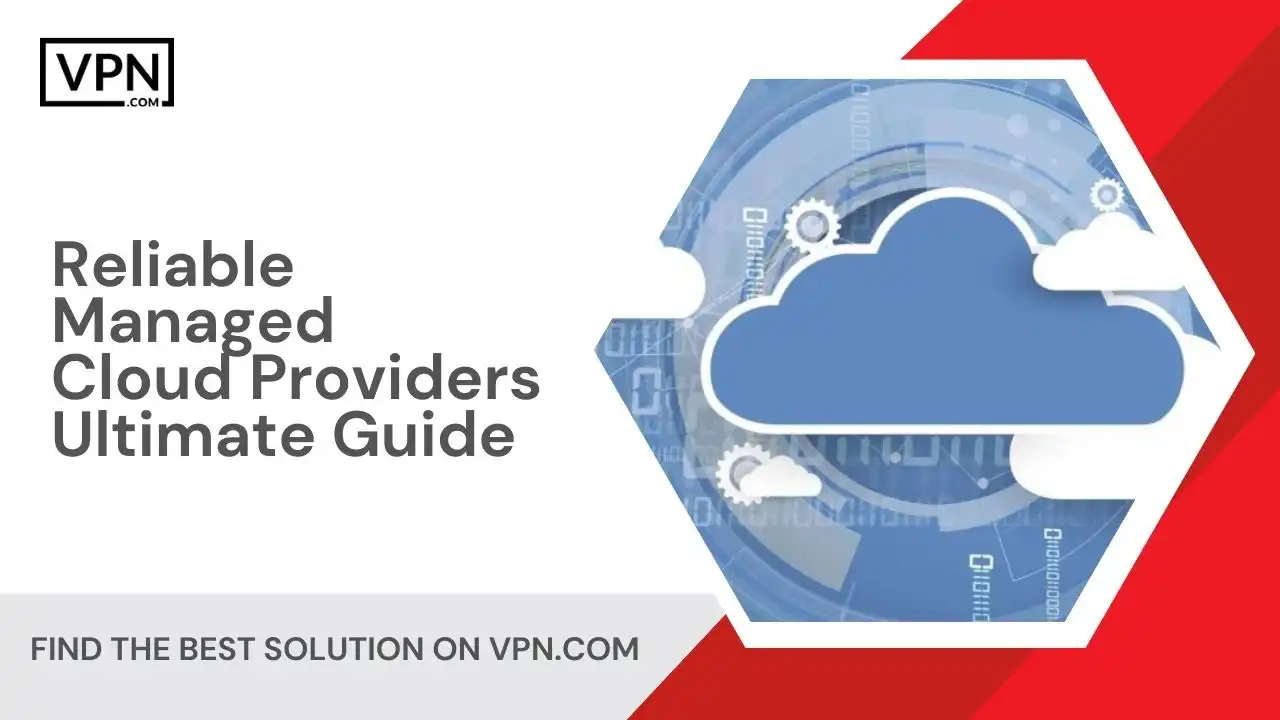
In the rapidly evolving digital landscape, reliable managed cloud providers have emerged as a game-changer. Managed cloud services, where computing resources are delivered via the Internet, have become a foundation for modern business operations. They offer many benefits, from cost savings to operational efficiency, making them an indispensable tool for businesses of all sizes.
Managed Cloud Service Providers (MCSPs) play a pivotal role in this ecosystem, offering expert management of these cloud resources. This guide will explore the top providers, key considerations, benefits, and future trends in managed cloud services. So, let’s embark on this journey to unlock the full potential of managed cloud services.
Understanding Different Types of Cloud Services
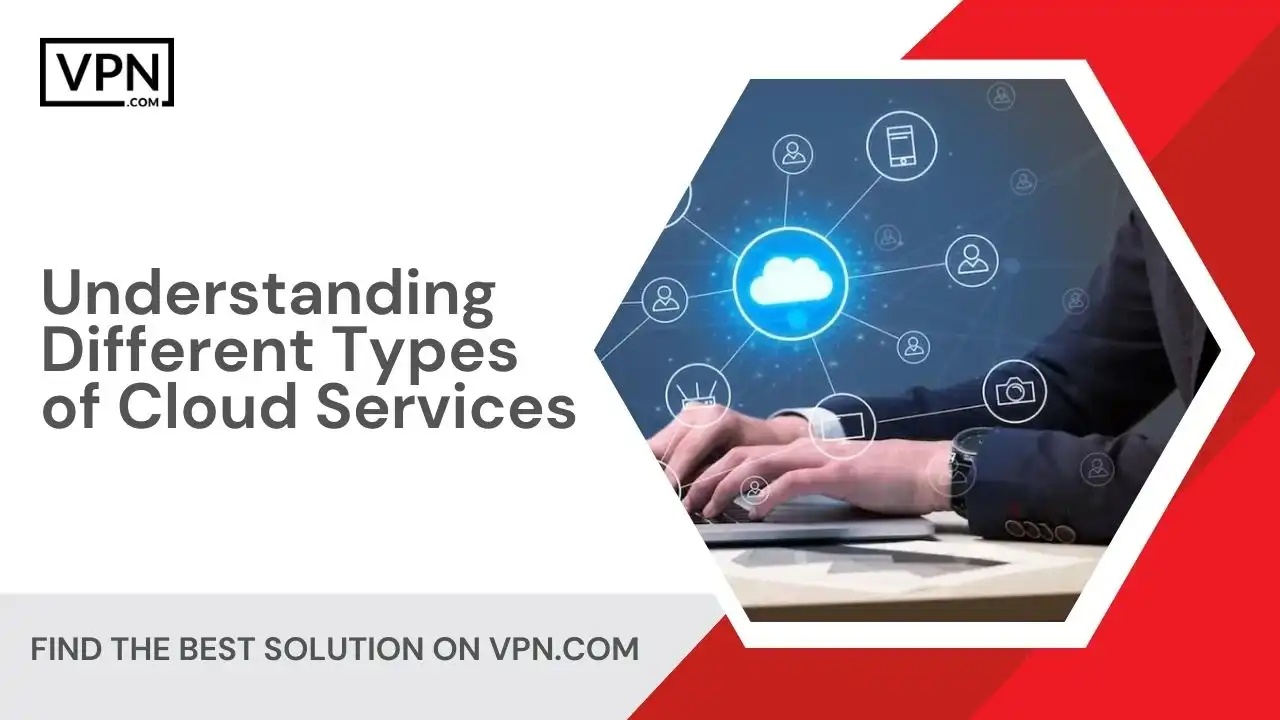
As we delve deeper into managed cloud services, it’s crucial to understand the different types of reliable managed cloud providers and cloud services available. Each type offers unique features and benefits, and the choice between them depends on various factors, including the specific needs of your business, your budget, and your desired level of control and security from reliable managed cloud providers.
This section will provide a comprehensive overview of the three main types of cloud services: public, private, and hybrid. We’ll explore what each type implies, their pros and cons, and the scenarios in which they are most beneficial with insights from reliable managed cloud providers. So, let’s begin our exploration of the diverse landscape of cloud services.

Signup at our #1 host
- Reduce Costs
- Shorten time to market
- Increase efficiency
- Improve agility & consistency
Public cloud services
Public cloud services offered by third-party reliable managed cloud providers have reformed how businesses operate by providing computing resources over the Internet. These services, free or sold on-demand, eradicate the need for businesses to invest in expensive on-premises hardware and application infrastructure.
Instead, they can pay per usage for their CPU cycles, storage, or bandwidth. Public cloud services from reliable managed cloud providers are cost-effective and highly scalable, allowing businesses to adjust their resource usage quickly based on demand.
Public cloud services cater to business needs, from simple web hosting to complex machine-learning applications. As we delve deeper into this guide, we’ll explore the top providers of these services, their unique offerings, and how they, as reliable managed cloud providers, can help your business thrive in the digital age.
Private cloud services
Private cloud services, or internal or corporate clouds, are a unique type of cloud computing catered wholly to a single organization by reliable managed cloud providers. Unlike public clouds that serve multiple entities, a private cloud is designed to meet one organization’s specific needs and objectives. It can be physically located in the organization’s in-house data center or managed by third-party reliable managed cloud providers.
Private clouds offer many benefits of public clouds, such as scalability and self-service, but with added control, security, and customization from reliable managed cloud providers. This makes them an ideal choice for businesses looking for the flexibility of cloud computing but with greater control over their data and resources.
As we proceed with this guide, we’ll delve into the nuances of private cloud services, their benefits, and how they, facilitated by reliable managed cloud providers, can be leveraged to promote business growth.
Hybrid cloud services
Hybrid cloud services, managed by skilled reliable managed cloud providers, represent a blend of the best features of public and private clouds, offering a flexible and efficient solution for businesses. This model combines on-premises infrastructure, private cloud services, and public cloud platforms managed by reliable managed cloud providers, allowing data and applications to move between them quickly.
Hybrid clouds offer the cost-effectiveness and scalability of public clouds, along with the control and security of private clouds. They allow businesses to choose where to deploy their workloads based on requirements, costs, and regulations and to adjust these deployments as their needs evolve, all under the guidance of reliable managed cloud providers.
As we continue this guide, we’ll delve into the complexities of hybrid cloud services, their benefits, and how they can be effectively utilized through reliable managed cloud providers to drive business growth.
Top Managed Cloud Service Providers
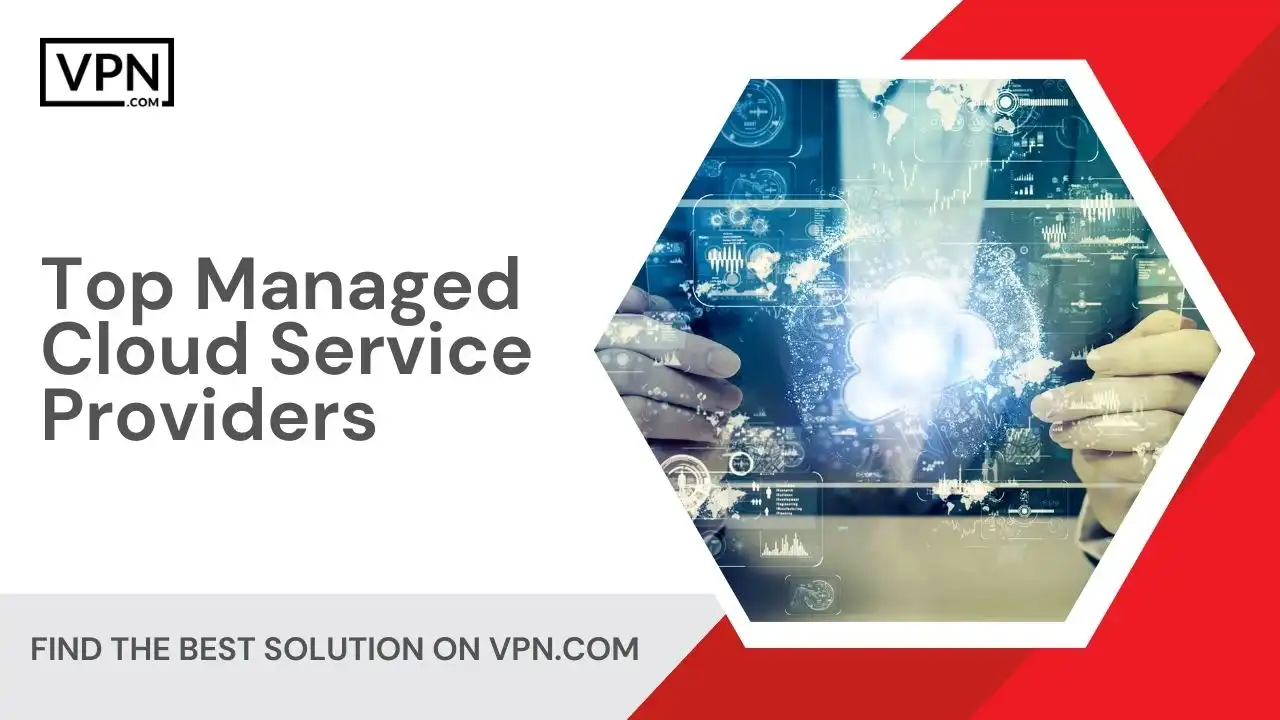
In the dynamic world of cloud computing, selecting the right managed cloud service provider is a critical decision for businesses aiming to leverage the cloud’s full potential. The market is full of providers, each offering unique services, expertise, and support structures designed to meet various business needs.
This section will introduce you to the top managed cloud service providers, highlighting their significance in the industry and diverse options. As we navigate this guide, we will uncover the strengths and specialties of each provider, helping you make an informed choice that aligns with your business objectives and technological requirements.
Amazon Web Services (AWS)
Amazon Web Services (AWS) is a leading managed cloud service provider known for its comprehensive suite of scalable and flexible cloud computing solutions. AWS caters to a broad spectrum of computing needs, from database storage to content delivery services, supporting businesses in their growth and digital transformation.
As an AWS Managed Service Provider (MSP) Partner, AWS offers complete lifecycle solutions, including cloud infrastructure and application migration, to help customers originate and unlock more excellent business value.
With a proven track record in end-to-end AWS solutions, AWS MSPs assist customers at any stage of their cloud journey, from initial planning to ongoing optimization and support, ensuring businesses can leverage the cloud to its fullest potential.
Microsoft Azure
Microsoft Azure, a key player in the managed cloud service provider landscape, offers businesses a robust suite of cloud computing services worldwide. As part of Microsoft Corporation’s Intelligent Cloud division, Azure provides a reliable, scalable, and secure platform for everything from data storage to machine learning, catering to various business needs.
Azure-managed service providers, such as InterVision, work closely with organizations to identify the best Azure solutions for their specific needs, ensuring optimal utilization of the platform’s capabilities. With a strong focus on innovation and customer success, Azure continues to empower businesses to overcome their most pressing challenges and achieve their strategic objectives in the digital era.
Google Cloud Platform (GCP)
Google Cloud Platform (GCP), a key offering from Alphabet Inc., is a top-managed cloud service provider that has carved a niche in cloud computing. GCP provides a robust, scalable, and secure platform for businesses to build, test, and deploy applications, leveraging the platform’s capabilities for safety, scalability, and innovation.
Google Cloud Managed Service Providers (MSPs) are highly specialized partners capable of migrating, building, and providing ongoing application support services. With a strong focus on customer success and innovation, GCP continues to empower businesses to overcome their most dynamic challenges and achieve their strategic goals in the digital era.
Alibaba Cloud
Alibaba Cloud, a leading player in the managed cloud service provider landscape, offers a comprehensive suite of cloud computing services. As China’s largest cloud computing company, Alibaba Cloud has significantly impacted the global stage, earning a market share of about 6%.
Known for its strong emphasis on AI capabilities, Alibaba Cloud provides a wide range of adaptable solutions to meet the diverse needs of businesses. As an Alibaba Cloud Managed Service Provider, the company offers a one-stop IT operation management service, assisting customers in optimizing their technology management framework and processes.
Oracle Cloud
Oracle Cloud, a prominent player in the managed cloud service provider landscape, offers a comprehensive suite of cloud computing services. As part of Oracle Corporation, Oracle Cloud Infrastructure (OCI) provides robust, scalable, and secure business solutions, including applications, databases, computing, storage, and networking.
Oracle Cloud is known for its high-performance infrastructure and unmatched customer services, making it a trusted business choice. Oracle Cloud Managed Service Providers work closely with organizations to optimize their technology management framework and processes, ensuring optimal utilization of the platform’s capabilities.
IBM Cloud
IBM Cloud, a significant player in the managed cloud service provider landscape, offers a complete set of cloud computing services. As part of IBM Corporation, IBM Cloud provides robust, scalable, and secure solutions for businesses, including applications, databases, computing, storage, and networking.
IBM Cloud is known for its hybrid cloud features, allowing companies to operate workloads across multiple clouds and on-premises settings. With a solid commitment to open-source software, IBM Cloud offers its clients more freedom and customization, setting it apart from the competition.
DigitalOcean
DigitalOcean, a top-managed cloud service provider, is renowned for its simplicity, competitive pricing, and excellent support offerings. It is particularly suited to the needs of small-to-medium-sized businesses, startups, and developers, offering a range of products, including virtual machines, managed databases, and Managed Kubernetes.
DigitalOcean’s robust cloud infrastructure and transparent pricing make it an ideal choice for businesses seeking a reliable and cost-effective cloud solution. As a DigitalOcean Managed Service Provider, the company offers a one-stop IT operation management service, assisting customers in optimizing their technology management framework and processes.
Linode
Linode, a top-managed cloud service provider, is recognized for its robust suite of cloud computing services and its commitment to simplicity and transparency. Particularly popular among developers and small-to-medium-sized businesses, Linode offers a range of products, including virtual machines, storage solutions, and networking services.
As a Linode Managed Service Provider, the company provides a one-stop IT operation management service, assisting customers in optimizing their technology management framework and processes.
Key Considerations When Choosing a Managed Cloud Service Provider
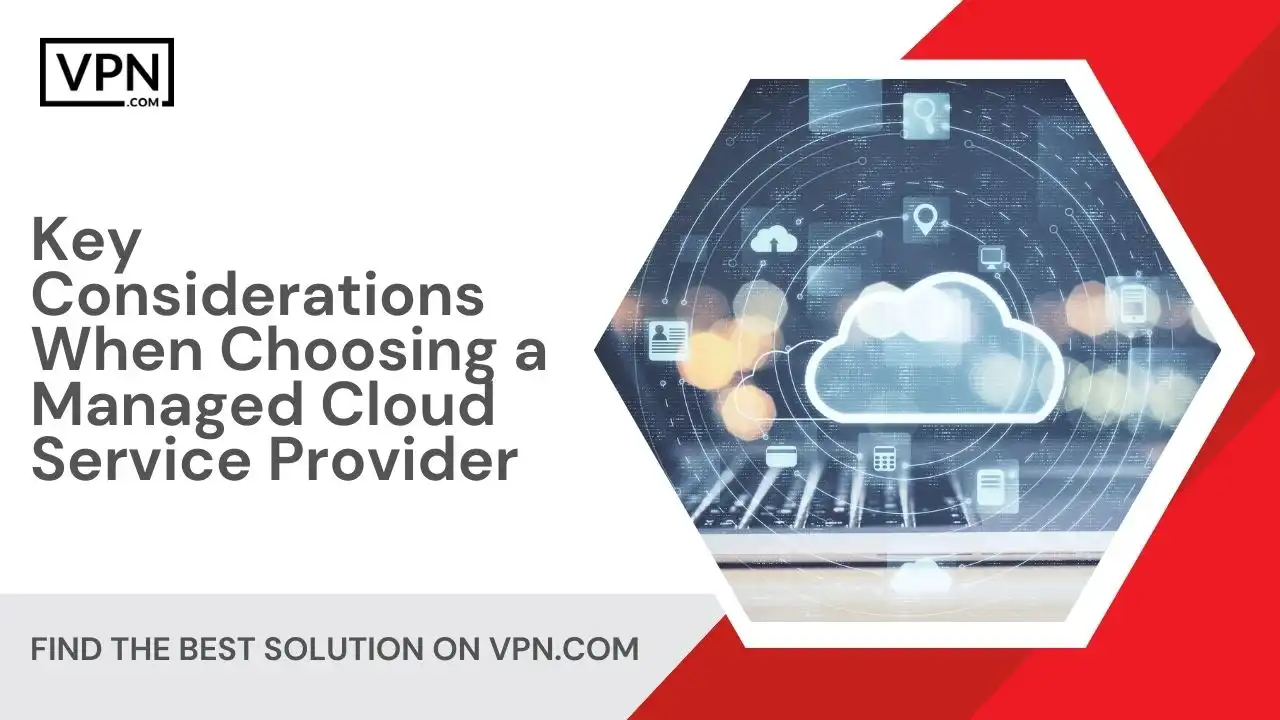
Choosing the right managed cloud service provider is a critical decision that can significantly impact your business’s digital transformation journey. This section will guide you through the key considerations to consider when making this choice.
From assessing the provider’s skills and expertise to understanding their security measures and service policies, these factors will help you select a provider that aligns with your business needs and objectives. Let’s delve into these considerations to ensure you make an informed decision that drives your business forward.
Skills and expertise
When choosing a managed cloud service provider (MCSP), skills and expertise are paramount. The provider’s proficiency directly impacts your organization’s efficiency, uptime, and bottom line and is crucial in ensuring your organization stays ahead of the competition. It’s essential to assess the MCSP’s knowledge and experience with your business’s specific cloud platforms and technologies.
The right provider should have a proven track record in managing similar cloud environments and should be able to demonstrate their technical capabilities, staff certifications, and ability to support multivendor environments. As your technology partner, the MCSP’s skills and expertise will drive your business’s growth and innovation in the digital era.
Security and Compliance
Security and compliance are critical considerations when choosing a managed cloud service provider (MCSP). In the era of increasing cyber threats and strict data privacy regulations, ensuring that your MCSP has robust security measures to protect your data is essential. This includes data encryption, access control mechanisms, and regular security audits.
Moreover, the MCSP should demonstrate compliance with relevant regulations such as GDPR, HIPAA, and PCI, which can be verified through compliance reports and certifications. Failure to comply with these regulations can lead to significant fines and legal action.
Therefore, the MCSP’s commitment to security and compliance is not just a matter of trust but a crucial factor in safeguarding your business’s reputation and financial health.
Transparency and control
Transparency and control are important considerations when choosing a managed cloud service provider (MCSP). Transparency refers to the ability of users to access, understand, and verify the information and processes related to cloud computing systems, including data provenance, governance, service level agreements, performance metrics, and audit logs. MCSPS must provide clear and comprehensive information about its operations, including usage metrics, expenses, and compliance status.
Control, on the other hand, relates to the ability of users to manage and oversee their cloud environments effectively. This includes choosing where data is stored and maintaining an audit trail of how all data related to the enterprise is accessed, edited, or deleted. Transparency and control enable businesses to make informed decisions, exercise their rights, and hold cloud providers accountable, enhancing trust and confidence in cloud services.
Service policies, procedures, and plans
Service policies, procedures, and plans are critical considerations when choosing a managed cloud service provider (MCSP). These elements determine how the MCSP operates and manages various aspects, including operations management, security and compliance, identity and access management, incident management, disaster recovery, and change management.
Understanding these policies, procedures, and plans is essential to ensure they align with your organization’s needs. Look for detailed documentation of responsibilities, actions, and roles, and ensure regular reviews, assessments, and approvals of all necessary documentation.
The MCSP’s service policies, procedures, and plans should provide a clear roadmap for managing tasks and incidents, offering you a sense of steadiness and control.
Operations management
Operations management is crucial when selecting a managed cloud service provider (MCSP). It encompasses the day-to-day oversight of cloud resources, ensuring systems run smoothly and efficiently.
A competent MCSP will offer robust operations management, which includes proactive monitoring, performance tuning, and optimization of workloads. This is vital for maintaining high availability, minimizing disruptions, and delivering the quality of service that end-users expect.
Moreover, effective operations management involves adapting to the complexities of hybrid cloud or IT environments with standardized operating protocols for long-term success. When evaluating an MCSP, assessing their ability to manage these operational complexities is essential, which will ultimately justify your investment and reduce the overall cost of cloud services.
Identity and access management

Identity and access management (IAM) is a cornerstone of cloud security, serving as the gatekeeper for user access to cloud resources. It’s a complex framework that manages digital identities and controls who has the right to use specific resources and to what extent.
When selecting a managed cloud service provider, evaluating their IAM capabilities is crucial. A provider with robust IAM solutions ensures that only authorized users can access sensitive data and applications, mitigating data breaches and unauthorized access risks.
Moreover, IAM is vital in maintaining compliance with various regulatory standards, making it a non-negotiable aspect of cloud security. As such, a provider’s IAM expertise is a crucial indicator of their ability to safeguard your cloud environment effectively.
Incident management
Incident management is vital when choosing a managed cloud service provider (MCSP). It systematically identifies, analyzes, and rectifies hazards to prevent future incidents. In cloud computing, incident management handles disruptions caused by system failures or cyber threats, ranging from minor issues like a single user’s inability to access an application to significant disruptions like a network-wide outage.
An effective cloud incident management process minimizes downtime, maintains customer trust, improves system resilience, and satisfies compliance needs. Therefore, when selecting an MCSP, evaluating their incident management capabilities is crucial, as this will directly impact the stability and availability of your cloud-based operations.
Disaster recovery
Disaster recovery is critical when choosing a managed cloud service provider (MCSP). It refers to the strategies and services to restore data, applications, and other resources following a disruption or disaster.
A competent MCSP will offer robust disaster recovery solutions, enabling quick and efficient recovery of your entire server, minimizing downtime, and ensuring business continuity. This is achieved through data replication and backup to a secondary location, often a cloud-based server.
The ability to recover swiftly from any unplanned event, whether a natural disaster or a cyberattack, is a significant advantage of cloud-based disaster recovery. Therefore, when selecting an MCSP, assessing their disaster recovery capabilities is crucial, as this will directly impact the resilience and reliability of your cloud-based operations.
Change management
Change management is crucial when selecting a managed cloud service provider (MCSP). It encompasses organizations’ methodologies and processes to plan and manage changes, particularly when transitioning to cloud-based services. Effective change management can protect your company from the typical traps associated with moving to the cloud, such as disruptions and challenges arising from changing infrastructure.
Choosing an MCSP that demonstrates a robust framework for managing these changes is crucial, ensuring smooth transitions and that the organization can adapt quickly to new cloud environments.
The right MCSP will help you navigate the complexities of cloud change management, from planning and implementation to ongoing optimization, making it an essential factor in maintaining operational stability and achieving long-term success in the cloud.
Benefits of Managed Cloud Services
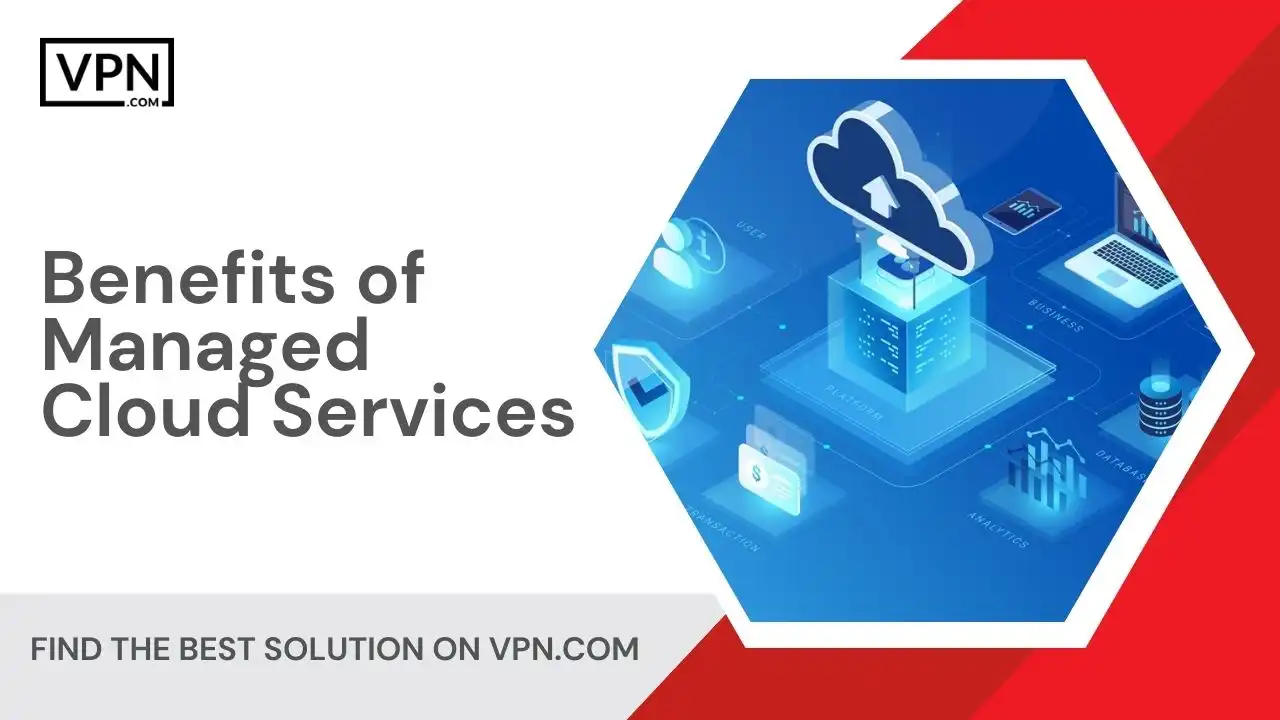
Managed cloud services offer myriad benefits that can transform how businesses operate, driving efficiency, innovation, and growth. This section will explore the key benefits of leveraging managed cloud services, from cost savings and scalability to enhanced security and business agility. Let’s explore how these advantages can empower your business to thrive in the digital era.
Cost savings and efficient resource utilization
Cost savings and efficient resource utilization are significant benefits of managed cloud services. These services operate on a pay-as-you-go model, eliminating the need for substantial upfront investments in hardware and software and allowing businesses to pay only for the resources they use.
This model, coupled with the ability to scale resources up or down as needed, ensures optimal resource allocation and prevents overspending on unused resources.
Moreover, managed cloud services can reduce operational costs by offloading the technical burden from your in-house IT staff, including tasks like regular updates, security, and maintenance. This minimizes downtime and associated costs and allows your team to focus on strategic initiatives, driving business growth and innovation.
Operational efficiency and competitive edge
Managed cloud services offer a dual advantage of operational efficiency and a competitive edge. They optimize your cloud platform, improving productivity and cost-effectiveness. This optimization streamlines operations, enhancing overall efficiency.
Managed services providers (MSPs) maximize your cloud capabilities by implementing cloud data backups and optimizing infrastructure costs. They also provide real-time insights into the cloud environment, allowing for proactive issue resolution and optimization of cloud resources. This leads to improved performance and cost-effectiveness.
On the competitive front, managed cloud services enable even small enterprises to access the same advantages as their larger competitors. They provide the flexibility to scale resources up or down on demand, responding dynamically to changing market conditions.
This alertness and the ability to redirect resources to innovation initiatives allow businesses to stay ahead of the competition, drive growth, and seize new business opportunities. Thus, managed cloud services enhance operational efficiency and provide a significant competitive edge.
Flexibility and customization
Managed cloud services offer flexibility and customization, which are crucial to adapting to changing business needs and market dynamics. The scalability of cloud services allows businesses to adjust their resources based on demand, ensuring optimal cost-effectiveness and efficiency. This flexibility extends to adopting new technologies and responding rapidly to customer demands, fostering innovation and growth.
In terms of customization, managed cloud services can be tailored to integrate seamlessly with existing systems, providing a personalized solution that meets specific business requirements. This customization can range from adjusting storage capacities to modifying applications, providing businesses with a unique and adaptable IT infrastructure.
In essence, the flexibility and customization offered by managed cloud services empower businesses to be more agile, responsive, and innovative, enhancing their competitive edge in the market.
Challenges and Potential Drawbacks of Managed Cloud Services
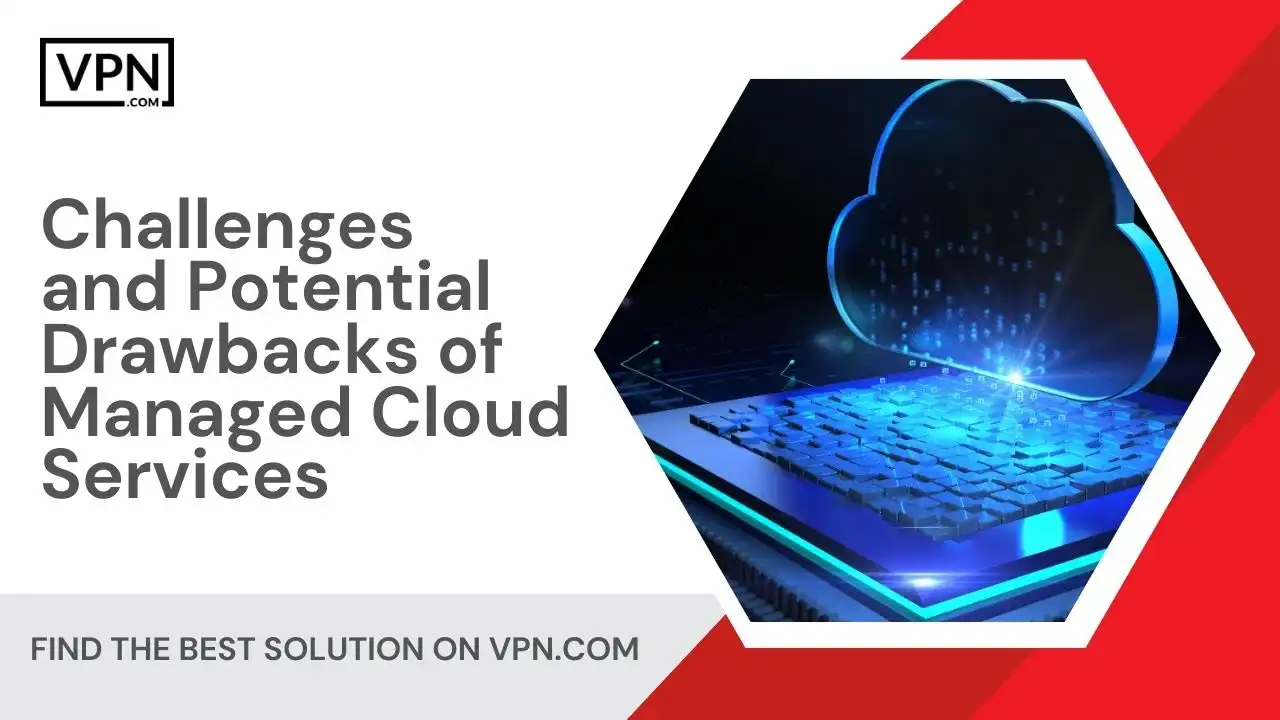
While offering numerous benefits, managed cloud services also have potential challenges and drawbacks. One of the primary concerns is the loss of control over data and applications, as businesses may need more direct oversight when a third-party provider manages these. This can also give rise to a certain level of dependence on the service provider, which could be problematic if the provider experiences issues or goes out of business.
Another challenge is the potential for increased costs. While managed cloud services can save businesses money in the long run by reducing the need for in-house IT resources, they may have a higher upfront cost than unmanaged services.
Security and compliance are also significant concerns. Ensuring data security, privacy, and regulation compliance can be complex in a cloud environment, especially when multiple cloud platforms are involved.
Migration complexity is another challenge, as transitioning existing systems and data to the managed cloud environment requires careful planning and coordination. Finally, vendor lock-in can be problematic if businesses cannot easily migrate their data and applications to a different provider or platform.
To mitigate these challenges, businesses can conduct thorough due diligence before selecting a managed cloud services provider, ensuring that the provider’s capabilities align with their needs and requirements. They can also implement robust security measures, utilize cost optimization strategies, and adopt multi-cloud or hybrid cloud strategies to avoid vendor lock-in. Regular monitoring and clear communication with the service provider can also help to address issues promptly and effectively.
In conclusion, while managed cloud services can present particular challenges, these can be effectively managed and mitigated with careful planning, strategic decision-making, and ongoing oversight.
Case Studies About Reliable Managed Cloud Providers
Managed cloud services have proven to be a game-changer for many businesses, providing them with the flexibility, scalability, and cost-efficiency needed to stay competitive in today’s digital landscape. Real-world case studies offer tangible evidence of these benefits.
For instance, a leading cloud storage provider, Dropbox, optimized its cloud costs by implementing an intelligent tagging system to track resource usage, gain visibility into its operations, and make cost-effective decisions.
Similarly, Netflix, Airbnb, and Amazon have leveraged cloud services to achieve scalability, improved reliability, faster innovation, cost savings, and increased revenue, helping them meet the demands of their rapidly growing businesses.
In another case, Atech, a leading Azure Cloud Service Provider, helped Great London Hospitality plan, implement, and mitigate risk while consolidating and migrating its infrastructure to the Azure cloud, optimizing ongoing costs. Evestor, another company, engaged Atech to assess its environment and provide recommendations on optimizing its existing Azure setup.
Moreover, some businesses have adopted a multi-cloud approach, distributing their operations across multiple cloud platforms to ensure uninterrupted services and cost-effectiveness.
These case studies represent how managed cloud services can help businesses of all sizes and across various industries enhance their operational agility, scalability, and overall competitiveness while managing costs effectively. They highlight the transformative power of cloud strategies, showcasing how businesses can leverage these services to drive growth and innovation.
Future Trends in Managed Cloud Services
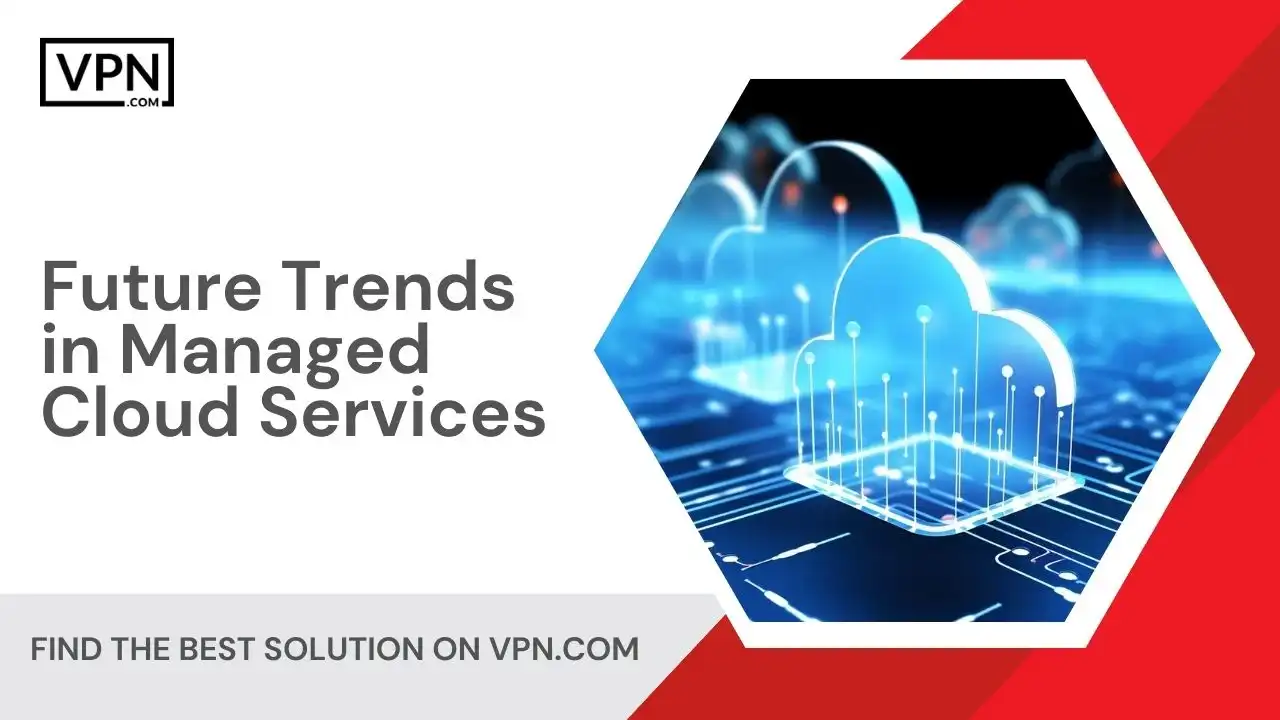
Managed cloud services are evolving rapidly, with several emerging trends shaping the future of this sector. The market is expected to grow significantly, with estimates suggesting it could reach USD 67592.48 million by 2028, reflecting a CAGR of 11.68%.
One of the key trends is the integration of Artificial Intelligence (AI) and Machine Learning (ML) into cloud services. These technologies transform managed services by automating tasks, improving efficiency, and enabling more intelligent decision-making.
Edge computing is another significant trend involving processing data closer to its source, reducing latency, and improving performance. This trend is particularly relevant as the Internet of Things (IoT) expands, with more devices generating data that needs to be processed quickly.
Multi-cloud and hybrid cloud strategies are also becoming more prevalent. These approaches allow businesses to distribute their operations across multiple cloud platforms, optimizing costs, enhancing resilience, and avoiding vendor lock-in.
Serverless computing is an emerging trend that allows developers to run code without managing servers, reducing infrastructure costs and increasing scalability. Moreover, the focus on data security is intensifying, with managed cloud service providers investing in advanced security measures to protect client data.
In terms of future outlook, adopting cloud-native technologies, integrating AI/ML, and shifting towards edge computing, multi-cloud, and hybrid cloud strategies are expected to continue. These trends will likely drive innovation, improve service delivery, and shape the future of managed cloud services.

Signup at our #1 host
- Reduce Costs
- Shorten time to market
- Increase efficiency
- Improve agility & consistency
Conclusion
Managed cloud services offer numerous benefits, including operational efficiency, competitive edge, flexibility, and customization. They enable businesses to optimize their cloud platform, streamline operations, and respond dynamically to changing market conditions. However, they also come with potential challenges, such as loss of control, increased costs, security concerns, migration complexity, and vendor lock-in.
Despite these challenges, the benefits of managed cloud services often outweigh the drawbacks, especially when businesses choose a reliable provider and implement effective strategies to mitigate potential issues. Real-world case studies and emerging trends further underscore the transformative potential of these services.
In conclusion, businesses should consider adopting managed cloud services as part of their digital strategy. They should conduct thorough due diligence when selecting a provider, ensure robust security measures, and consider adopting multi-cloud or hybrid cloud strategies.
With careful planning and strategic decision-making, businesses can leverage the power of managed cloud services to drive growth, innovation, and competitiveness in the digital age.
Customer Reviews for Performive.com

Gary Simat Great Leader, Performive Great Company
October, 17 2022

Best Hosting Provider
March, 25 2021

Excellent performance from an elite company.
March, 8 2021




